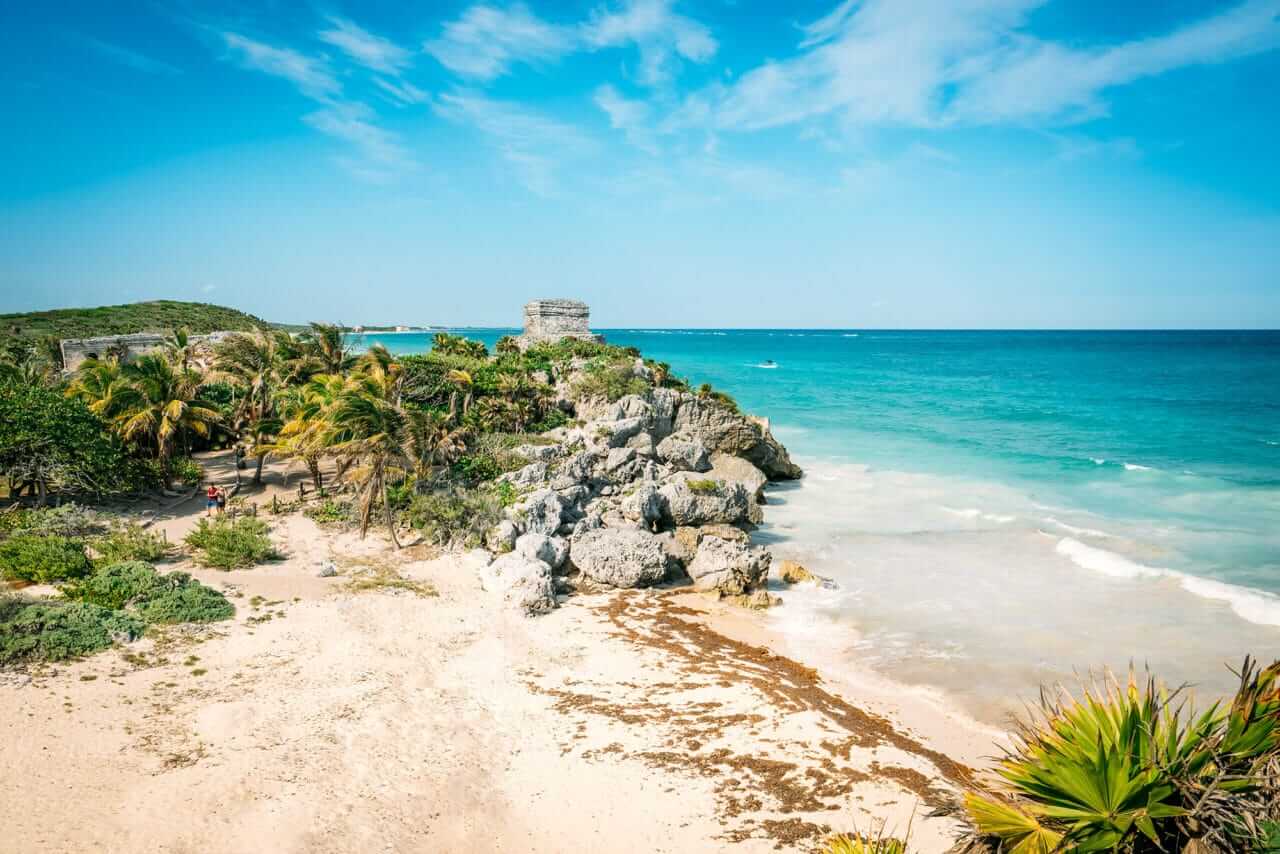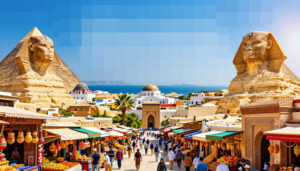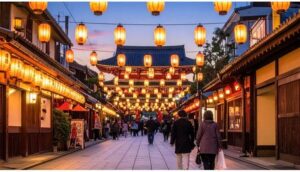After emerging from crystal-clear cenote waters Yucatan onto a limestone ledge in a tranquil underground cavern, travelers on the revolutionary Camino del Mayab experience profound connections with nature through guided meditation and mindful breathing techniques. This transformative moment epitomizes how Mexico cultural hiking has evolved beyond traditional tourism to offer meaningful encounters with Maya communities Yucatan and pristine natural environments. The Yucatan hiking trail represents Mexico’s pioneering long-distance cultural path that weaves through authentic indigenous villages Mexico while being sustainably managed by environmental organization EcoGuerreros Yucatan, creating a new model for responsible cultural tourism that directly benefits local communities.
Maya cultural trail Mexico development reflects growing demand for authentic travel experiences that combine adventure with cultural education and community support. Cenote swimming experiences serve as powerful entry points for understanding the sacred natural sites that form the spiritual backbone of Maya heritage.
Yucatan sustainable tourism initiatives like the Camino del Mayab demonstrate how community-based travel can provide economic opportunities for indigenous communities while preserving cultural traditions and protecting fragile ecosystems. Mexico eco-tourism increasingly emphasizes these collaborative approaches.
The trail’s environmental meditation practices and cultural immersion activities create transformative experiences that connect international visitors with Maya wisdom traditions and biodiversity conservation efforts that have sustained communities for centuries.
Trail Evolution and Community Integration
Camino del Mayab expansion from 100km to 132km since its launch reflects careful community consultation and sustainable development principles that prioritize local needs over tourism growth. Maya village tourism benefits from this measured approach that ensures cultural authenticity and environmental protection.
Yucatan trail development begins in Merida’s historic San Sebastian neighborhood, following anticlockwise routes through indigenous communities like Mucuyche and Uayalceh before concluding at Mayapan archaeological site. Mexico archaeological sites integrated into hiking experiences provide historical context for contemporary Maya culture.
Community tourism Mexico through the Camino del Mayab ensures 60% of tour revenue returns directly to participating villages, supporting local economic development and cultural preservation initiatives. Indigenous-led tourism creates authentic experiences while maintaining community control over cultural representation.
Annual trail additions respond to community readiness and infrastructure development that supports sustainable visitor numbers without overwhelming local resources or disrupting traditional lifestyles. Responsible tourism development prioritizes long-term community benefits over short-term profits.
Sacred Cenotes: Natural Cathedrals of Maya Culture
Cenote Dzombakal near San Antonio Mulix exemplifies the off-the-beaten-path cenotes that provide serene alternatives to crowded tourist destinations. Sacred cenotes Maya offer profound spiritual experiences through their turquoise waters and stalactite formations that inspire reverence and contemplation.
Cenote meditation practices guided by knowledgeable locals combine mindfulness techniques with Maya spiritual traditions that view these freshwater caves as sacred portals connecting earth and underworld realms. Spiritual tourism Mexico increasingly incorporates these authentic indigenous practices.
Jungle cenotes Yucatan serve as “lungs of the jungle,” providing water resources for agriculture and biodiversity hotspots that support complex ecosystems. Environmental education during cenote visits emphasizes conservation importance and traditional ecological knowledge that guides sustainable use.
Cenote Chihuo-Hol with its green algae-covered walls and cave-like atmosphere demonstrates the diversity of these natural formations while providing opportunities for wildlife observation and geological education that enhances visitor understanding.
Biodiversity Discovery and Traditional Ecological Knowledge
Yucatan jungle biodiversity reveals itself through guided nature walks that showcase endemic species and traditional plant uses documented by Maya communities over generations. Medicinal plants Mexico knowledge sharing creates bridges between indigenous science and contemporary conservation efforts.
Acacia cornigera trees with their ant-inhabited thorns illustrate complex ecological relationships that guides explain through traditional ecological stories linking natural science with cultural narratives. Traditional medicine plants like the sutub demonstrate sophisticated Maya botanical knowledge.
Mexico wildlife guides with backgrounds in biology and indigenous knowledge provide comprehensive educational experiences that respect both scientific methodology and traditional ways of knowing. Cultural ecology perspectives help visitors understand human-nature relationships.
Jungle ecosystem education emphasizes interconnected relationships between species, habitats, and human communities that demonstrate sustainable living practices developed through centuries of environmental observation and adaptive management.
Historical Hacienda Heritage and Social Justice Education
Yaxcopoil hacienda museum provides powerful education about colonial exploitation and indigenous resistance through firsthand accounts from multi-generational workers like Arsenio Avalos. Hacienda history Yucatan reveals social inequalities created by henequen plantation systems.
Colonial history Mexico education at converted hacienda hotels balances architectural appreciation with social justice narratives that acknowledge worker exploitation and debt peonage systems that trapped indigenous families. Historical tourism increasingly emphasizes these complex legacies.
Henequen industry history demonstrates how global economic forces and technological changes devastated regional economies and rural communities when synthetic alternatives replaced natural fiber production. Economic history lessons provide context for contemporary community development challenges.
Heritage tourism Mexico through hacienda conversions creates opportunities for storytelling that honors worker experiences while supporting community economic development and historical preservation efforts.
Maya Living Traditions and Cultural Transmission
Traditional Maya houses with stone walls and huano palm thatched roofs demonstrate sustainable architecture adapted to tropical climates while reflecting cultural aesthetics and environmental harmony. Indigenous architecture provides models for eco-friendly construction.
Tortilla making workshops with community members like Norma Calam wearing traditional huipil dresses create intimate cultural exchange opportunities that support traditional skills and women’s economic empowerment. Maya textile traditions showcase sophisticated cultural practices.
Traditional cooking Mexico using wood-fired stoves and heritage corn varieties maintains food sovereignty and nutritional traditions while providing authentic culinary experiences for visitors. Indigenous food systems demonstrate sustainable agriculture practices.
Cultural transmission through hands-on learning helps preserve traditional knowledge while creating intergenerational connections between Maya elders and younger community members engaged in tourism activities.
Women’s Empowerment and Traditional Crafts
Maya women’s cooperatives in villages like Xcanchakan demonstrate how traditional crafts using henequen fibers create economic opportunities while preserving cultural skills and fostering community solidarity. Women’s empowerment Mexico benefits from these collective enterprises.
Traditional handicrafts Mexico including basket weaving and fiber arts provide sustainable livelihoods while maintaining cultural identity and artistic traditions that connect contemporary communities with ancestral practices. Indigenous artisans receive direct economic benefits from cultural tourism.
Sisal fiber processing workshops offer therapeutic experiences for visitors while demonstrating traditional techniques that utilize sustainable materials and time-honored methods. Traditional crafts education creates appreciation for indigenous innovation.
Community women’s organizations strengthen through tourism revenue that supports capacity building, leadership development, and collective decision-making processes that enhance social cohesion and economic security.
Indigenous Beekeeping and Medicinal Traditions
Melipona bee conservation through traditional Maya beekeeping demonstrates indigenous environmental stewardship that maintains native species and ecosystem health while producing medicinal honey for community health practices. Native bee species face threats from habitat loss and pesticide use.
Traditional beekeeping Mexico using stingless bees provides unique cultural experiences while supporting biodiversity conservation and traditional medicine practices that treat eye conditions and skin problems. Indigenous medicine relies on sustainable harvesting of natural resources.
Medicinal honey production generates premium products that support beekeeper livelihoods while maintaining traditional ecological knowledge about plant-pollinator relationships and ecosystem indicators. Conservation beekeeping protects endangered species.
Community health practices incorporating traditional medicines demonstrate healthcare alternatives that complement modern medical systems while preserving cultural knowledge about healing practices and preventive care.
Authentic Maya Cuisine and Hospitality
Traditional Yucatan cuisine prepared by community members like Isabel Cristina Flores Diaz showcases regional ingredients and ancestral cooking techniques that maintain cultural authenticity while supporting local food systems. Maya culinary traditions emphasize seasonal ingredients and sustainable practices.
Black bean soup traditional and stir-fried vegetables demonstrate Maya nutrition knowledge that maximizes local biodiversity while creating flavorful dishes adapted to tropical climates. Indigenous cuisine provides healthy alternatives to processed foods.
Freshly made tortillas and sweetened pumpkin desserts showcase traditional food preparation using heritage varieties and time-honored techniques that preserve cultural flavors and nutritional wisdom. Traditional cooking methods minimize environmental impact.
Family hospitality in traditional settings creates authentic cultural exchanges that benefit both visitors and host communities while strengthening social bonds and cultural pride within Maya communities.
Alternative Tourism Model and Community Benefits
Community-based tourism alternatives to mass tourism destinations like Holbox, Merida, and Tulum demonstrate how responsible travel can support rural development while preserving cultural integrity and environmental quality. Sustainable tourism models prioritize community control.
Cultural immersion experiences provide authentic alternatives to commercialized attractions while ensuring tourism revenue directly supports local families and community infrastructure development. Ethical tourism emphasizes fair distribution of economic benefits.
Rural community development through sustainable tourism creates employment opportunities for over 240 Maya community members while strengthening cultural traditions and environmental conservation efforts. Indigenous economic development maintains cultural values.
Transformative travel experiences that combine adventure, education, and cultural exchange attract conscious travelers seeking meaningful connections with indigenous communities and natural environments. Responsible tourism growth supports community priorities.
This revolutionary approach to cultural tourism in the Yucatan Peninsula demonstrates how sustainable travel can create mutually beneficial relationships between international visitors and indigenous communities while protecting the natural and cultural treasures that make these experiences possible.
For comprehensive cultural travel resources, sustainable tourism insights, and indigenous community experiences, visit The Inspiring Insight – your essential guide to meaningful adventures that support local communities and cultural preservation worldwide.




